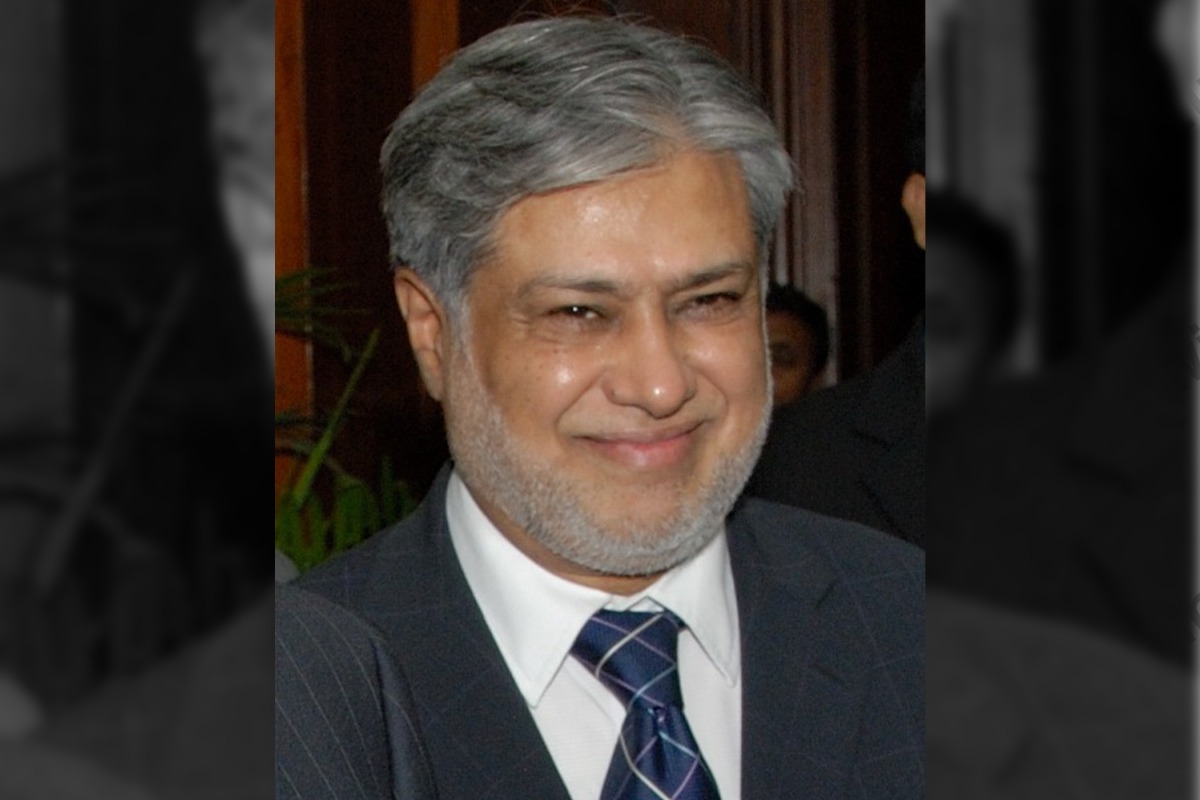Pakistan Finance Minister Ishaq Dar has advised a group of charity organizations to meet the officials of the State Bank of Pakistan (SBP) to finalise the mechanism for the proposed interest-free fundraising for a period of five years.
Dar while attending the National Islamic Economic Forum’s (NIEF) seminar on ‘Defining a roadmap for Islamization of Pakistan economy’ in Karachi further said that “Islamization of the Pakistan economy is very close to my heart”. His statement came after Saylani Welfare trust and other Islamic charity organizations offered to raise $2 Billion from overseas Pakistanis in favour of the government.
This move is aimed at dealing with the current economic crises and the issue of the nonopening of letters of credit plaguing Pakistan. Pakistan’s foreign reserves have dipped to just $3.09 billion, as the Pakistani rupee tumbled to a record low of PKR 271.36 against the US dollar. The foreign reserves of Pakistan will last for just 18 days and the country is set to default on the international front.
Chairman of Salyani Welfare Trust Mohamad Bashir Farooqi said his organization along with four to five other Islamic organizations was planning to request “patriotic overseas Pakistanis to lend dollars to the country without any interest for a period of five years”. “This will help Pakistan escape the economic crises,” he stated. He expects to raise at least $2 billion in a transparent and documented way if the mechanism to donate funds is put in place. FM Dar responded by saying “I will ask governor SBP to meet your team and create a mechanism.”
He also stated that between 2013 to 2017 during the Pakistan Muslim League-Nawaz (PML-N) government, he had taken a number of steps to take the Pakistan economy towards Islamization. “We need to stop Riba (interest) as soon as possible”, Dar further said.
Earlier today Pakistan Prime Minister Shahbaz Sharif said that the International Monetary Fund (IMF) team visiting the country for discussions on the ninth review is giving a very tough time to Finance Minister Ishaq Dar. He said, “Our economic challenge at this moment is unimaginable, as the conditions we have to fulfill are beyond imagination”. He said that the country has no choice but to implement the conditions to complete the IMF review. PM Sharif made these comments in the context of funds required to fight the resurging Islamic militancy while chairing a meeting with civil and military leaders on the recent suicide bombing in Peshawar.
Earlier, in a major jolt to the finance ministry of Pakistan IMF rejected Pakistan’s debt management plan by terming it unrealistic. The IMF in turn asked the government of Pakistan to raise the electricity tariffs to PKR 12.50 per unit in order to restrict the additional subsidy at PKR335 billion for the current fiscal year.
The IMF has also directed the Finance ministry of Pakistan to increase the general sales tax rate to a minimum of 18% after the government had shared its revised macroeconomic projections, which showed inflation accelerating to 29% and economic growth rate slowing down to just 1.5%. The higher inflation and lower economic growth are set to bring higher unemployment and increase poverty in Pakistan. Compared to the earlier estimates of generating 1.5 million new jobs, the government has now estimated that the new jobs in the current fiscal year will be under half a million.
A finance ministry official is quoted as saying that no decision has yet been taken and the ministry would take the IMF’s demand to the Prime Minister once the fiscal framework and the gap were agreed upon. He further said that the total cost of debt servicing could peak at a whopping PKR 5.2 trillion in the current fiscal year of 2022-23.
There is increasing fear in Pakistan that implementation of IMF proposals to seek a $3.5 billion bailout will create civil unrest in the country as the prices of essential commodities are skyrocketing and common people are finding it increasingly difficult to buy day-to-day essential goods.










